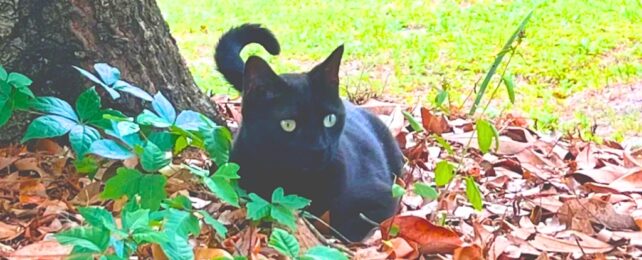A pet cat in Florida may have made scientific history by enabling the discovery of not one but two new strains of viruses.
The cat in question, called Pepper, is like many cats, in that he likes to bestow affection on his human companion with thoughtful gifts of dead animals (surprisingly, orcas do this too).
So Pepper's owner, University of Florida virologist John Lednicky, decided to take advantage of these usually unwanted and morbid presents.
Related: Scientists Developed a Questionnaire to Find Out if Your Cat Is a Psychopath
"This was an opportunistic study," says Lednicky. "If you come across a dead animal, why not test it instead of just burying it? There is a lot of information that can be gained."
And sampling by cat has so far proven fruitful.
When testing an Everglades short-tailed shrew (Blarina peninsulae) procured by Pepper, Lednicky and his colleagues discovered a previously unidentified orthoreovirus. Not much is known about these viruses, but they have, on rare occasions, been linked to stomach flu and meningitis in children.
"Mammalian orthoreoviruses were originally considered to be 'orphan' viruses, present in mammals including humans, but not associated with diseases. More recently, they have been implicated in respiratory, central nervous system, and gastrointestinal disease," explains virologist Emily DeRuyter.
"There are many different mammalian orthoreoviruses and not enough is known about this recently identified virus to be concerned."

So DeRuyter, Lednicky, and colleagues published the sequenced genome of their cat-enabled discovery, to begin the process of better understanding these viruses.
It's not the first time Pepper has pawed at science.
Last year, the cat gifted Lednicky a mouse containing a jeilongvirus that had never been found in the US before. The strain, Gainesville rodent jeilongvirus 1, is concerningly capable of infecting primate cells, as well as the cells of other mammals.
"[This suggests] the virus has a generalist nature with the potential for a spillover event," the researchers wrote in a 2024 paper describing the discovery.
"The early detection of endemic viruses circulating within hosts in North-Central Florida can significantly enhance surveillance efforts, thereby bolstering our ability to monitor and respond to potential outbreaks effectively."
As well as increasing our ability to detect and monitor a wider range of viruses, these findings also highlight the risks that can come with allowing cats to roam freely outside.
A free-ranging cat can kill dozens of animals each year, creating more opportunities for diseases to jump between species. Recently, cats have been flagged as having potential to spread bird flu to their owners as well.
Not that Pepper knows anything about any of that.
The new virus genome was published in Microbiology Resource Announcements.
